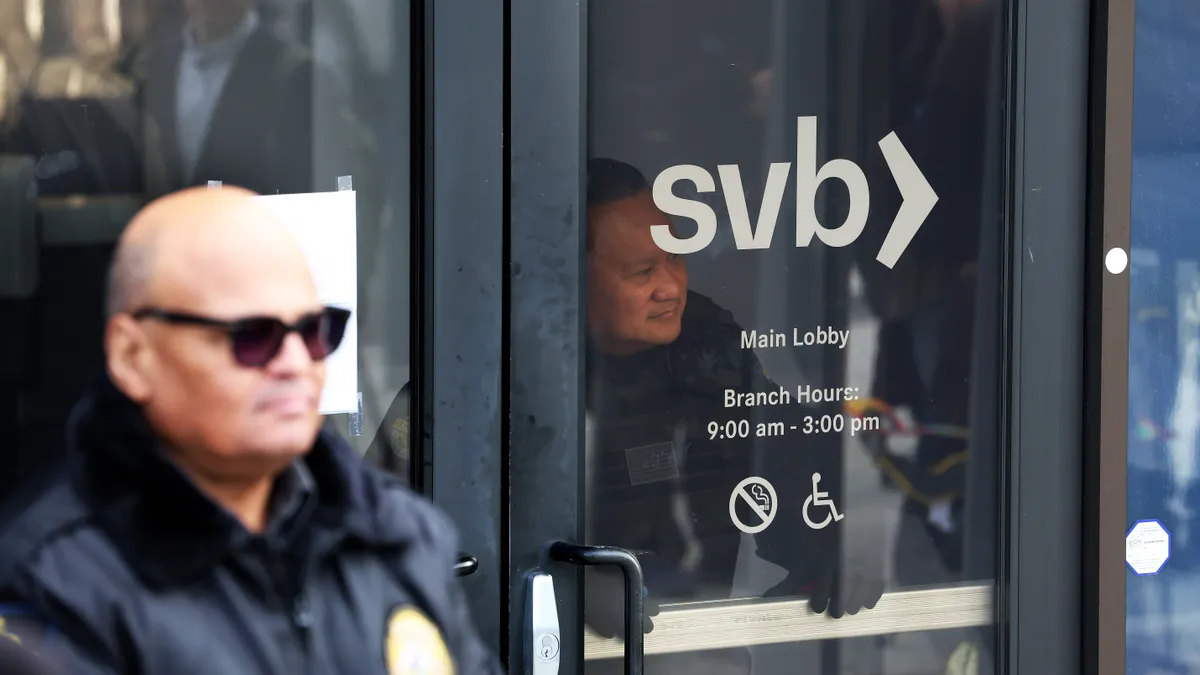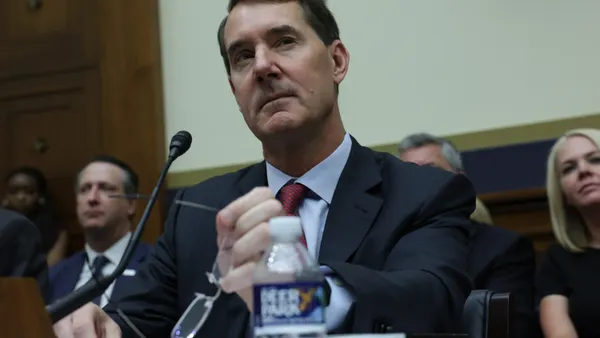Amy Spurling didn’t think Silicon Valley Bank would collapse.
“I'd actually tried buying some of their stocks that morning … it’s just been an institution,” she told HR Dive. “It’s a tech institution that has been part of so many companies for so long that I thought it would right itself.”
Come Monday, the founder and CEO of Compt, a total rewards company, was reaching out to her clients to see if they needed extra support “as they’re transitioning to new payroll platforms” or if they “might need to pay bills from a different account — things like that.”
Fortunately, Spurling’s clients were able to transfer money to new accounts promptly; additionally, on Sunday, the Treasury Department, Federal Reserve and Federal Deposit Insurance Corp. pulled through to protect SVB depositors. This freed up money to flow again Monday, but the woes that began March 8 have left entrepreneurs and venture capitalists — and the payroll and people professionals supporting them — shaken up.
Early on at South by Southwest, the leading food-film-education-tech festival held in Austin, Texas, every March, tech industry professionals couldn’t stop talking about the bank collapse. Some attendees characterized the festival as a “group therapy session.”
“I honestly don’t know how any founders are surviving right now,” Spurling said. “I need to be in front of my computer managing this real time.”
Reports indicate that some SXSW panelists were glued to their phones while on stage Friday, while many other executives have been taking panicked calls left and right.
“I think we’re gonna see a lot of diversification in banking coming out of this, both for finance and HR professionals — keeping some liquid cash in multiple places,” Spurling said.
A key issue that led to SVB’s implosion was lack of liquidity — something bank leadership attempted to fix by selling all of its available-for-sale bonds and rallying venture capitalist investors on a call Thursday.
Shortly after SVB went down in flames, New York’s Department of Financial Services closed Signature Bank to protect depositors. It’s worth noting that Silvergate, a crypto bank, took its last shuddering breath Thursday after months of “financial turmoil.”
Spurling predicted the federal government will crack down on venture capital. “I think we're gonna see a lot of potential new regulations coming out from Congress,” she said.
In the meantime: Where does this SVB collapse leave HR? Apart from picking up the pieces, likely re-assessing payroll practices. Spurling recommended that managers examine their “HR tech stack.” In a similar vein, HR professionals may need to reconsider total rewards — particularly those that are cryptocurrency-based.
“There has been a big movement in fintech, for both finance and HR, to do all kinds of employee credit cards, benefits on credit cards, things like that,” Spurling said. “I think a lot of those are likely going to go away. Because the instrument of how you get that credit, where that money is sitting, is going to be looked at much more closely.”
Her biggest takeaway: “HR and finance really work together.”
Ultimately, she said, this is a stressful time for many workers, who are wondering if they’re going to get paid on time or if they will be laid off entirely. Communication is “really critical,” Spurling said, recommending that HR take the lead on communications as much as possible.
“Obviously, founders need to be out in front of this as well. But HR and finance really working in close hands is going to be critical, because it can’t be all in one bucket or the other. The two teams need to absolutely be in lockstep to weather this,” Spurling said.














